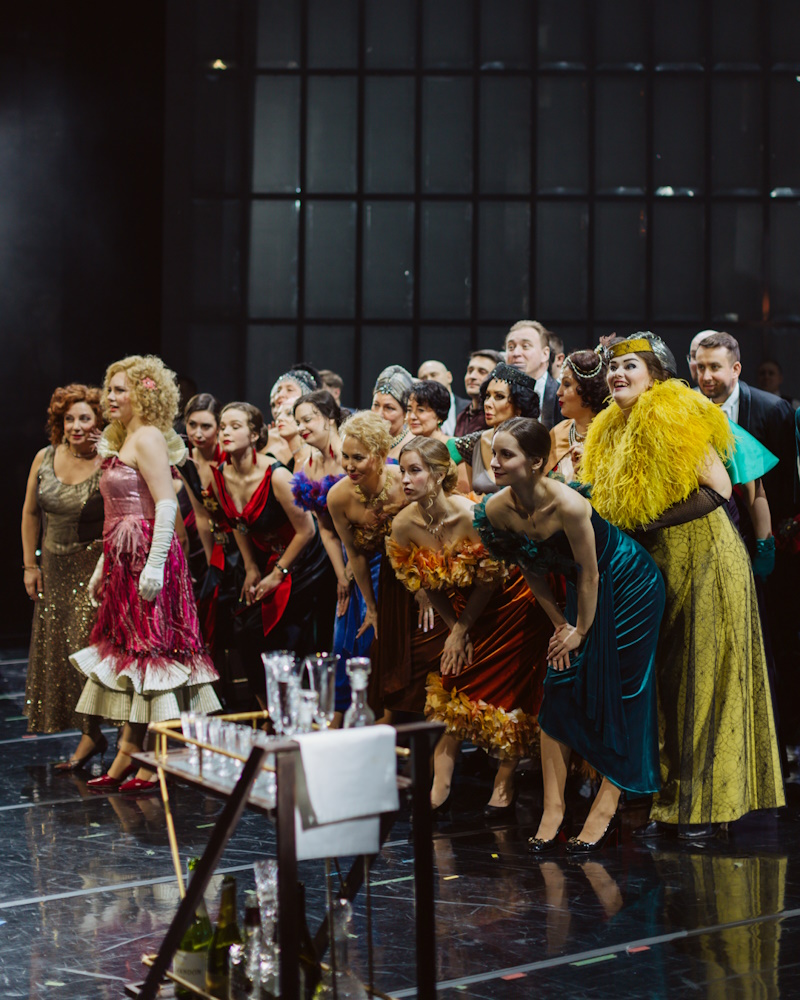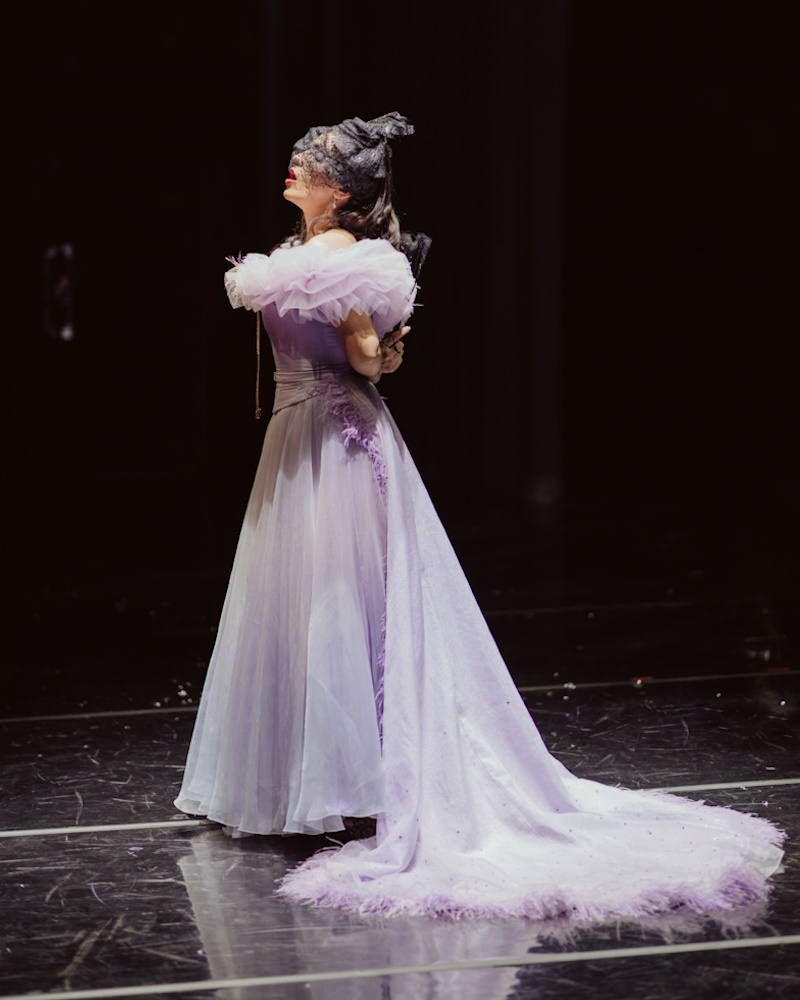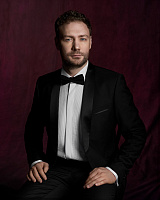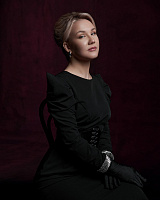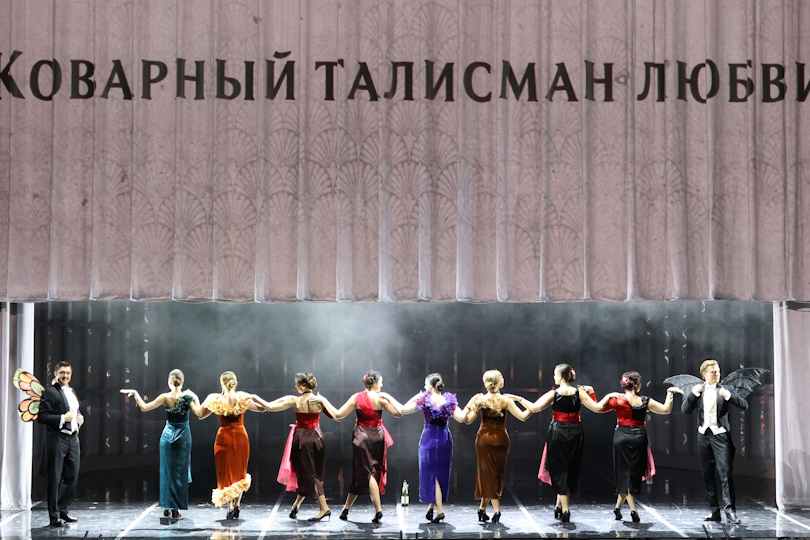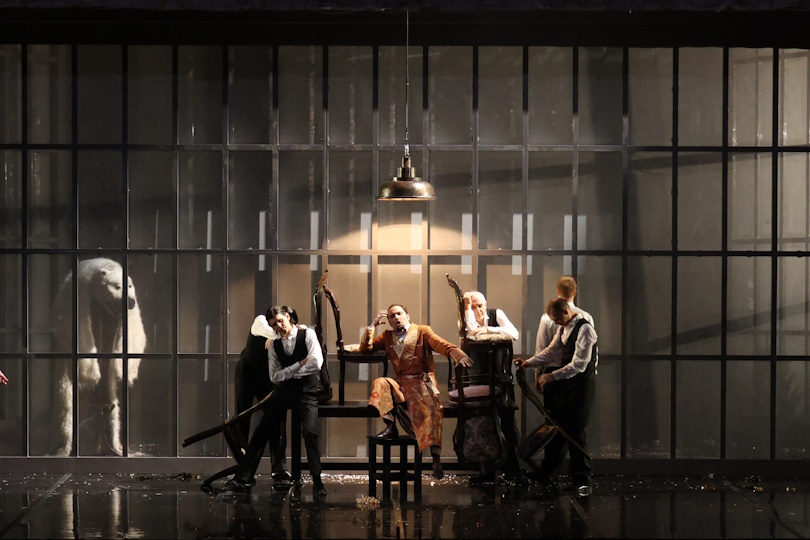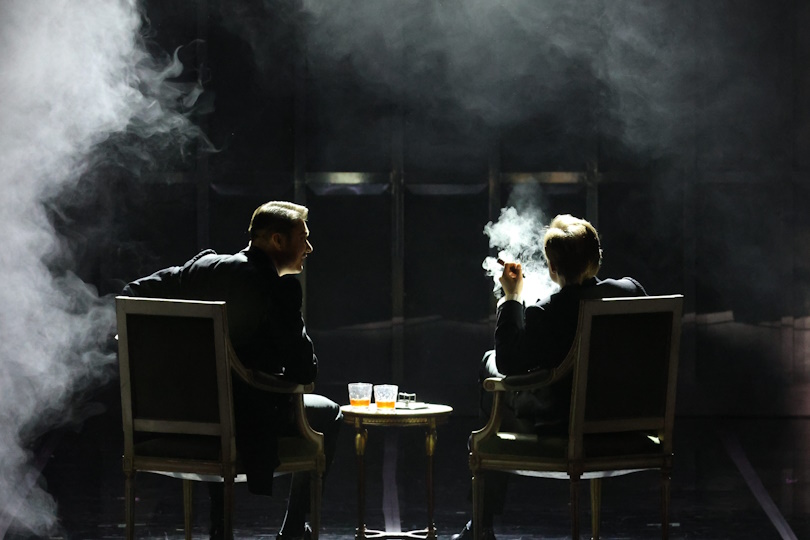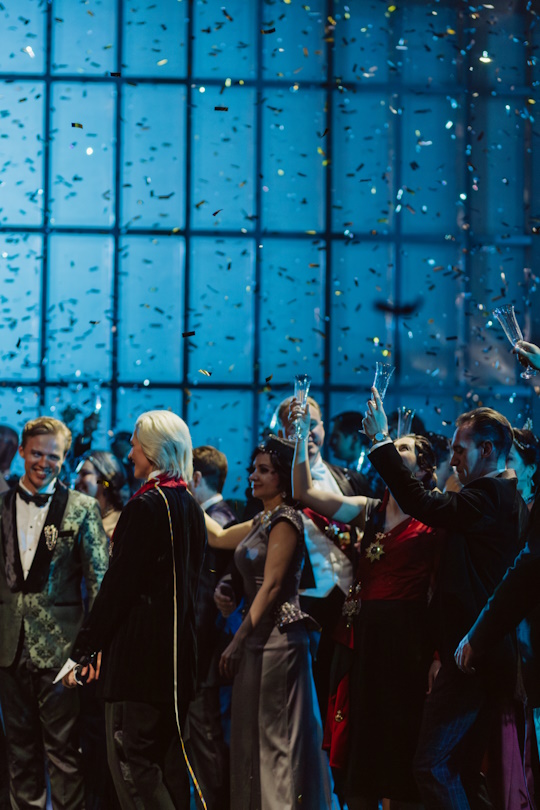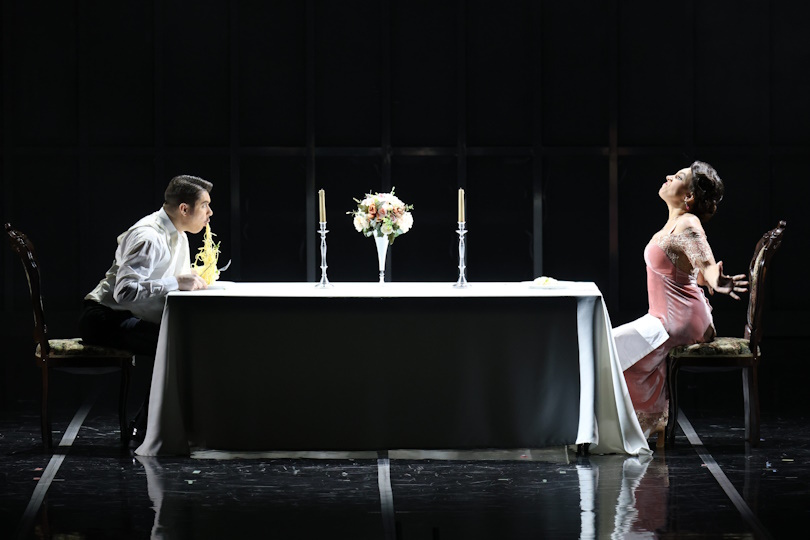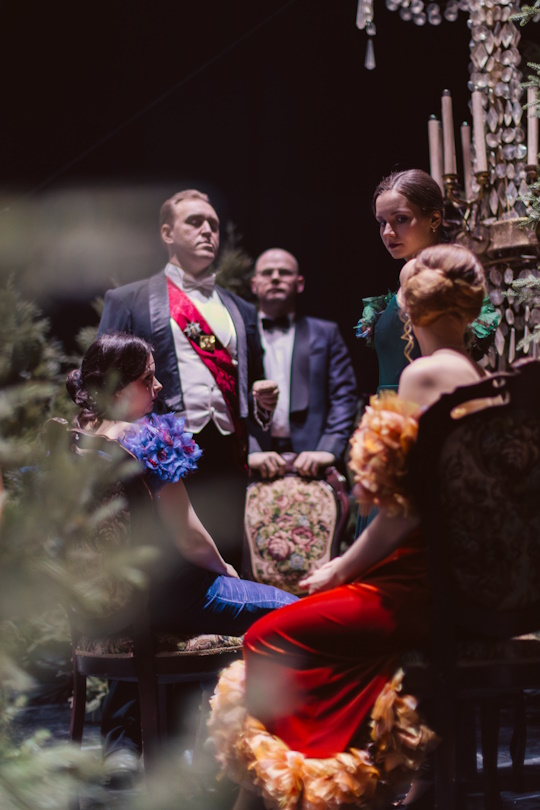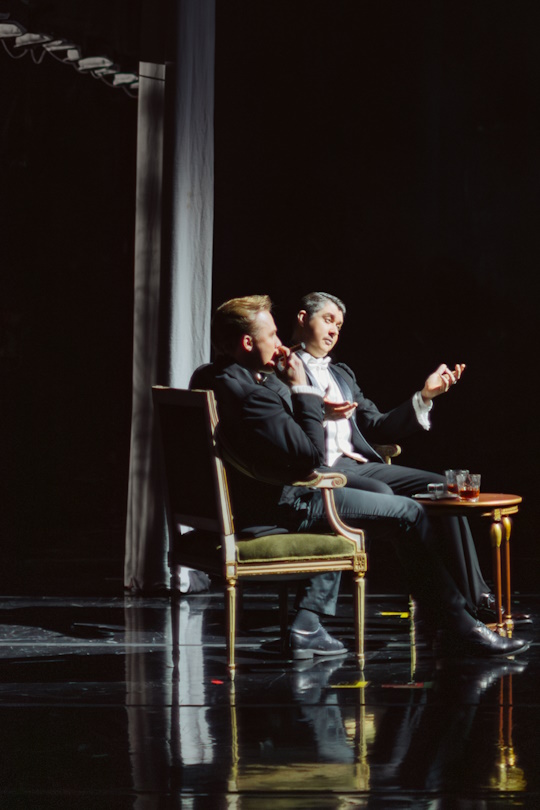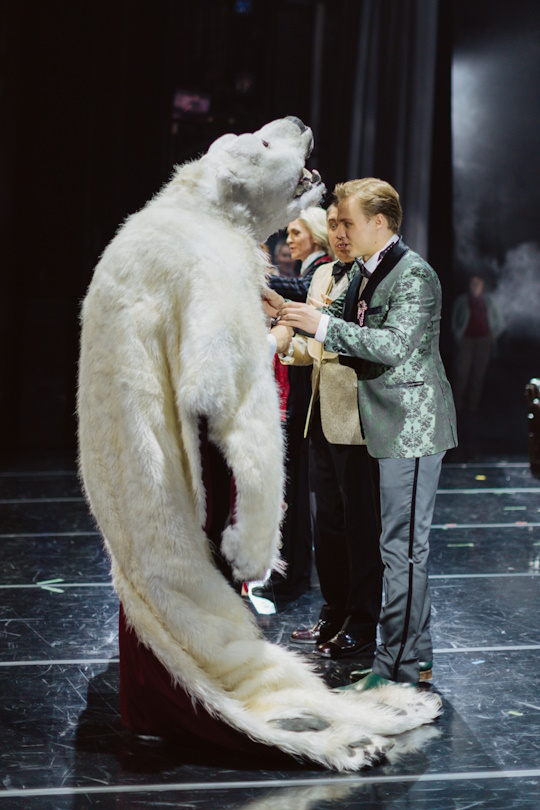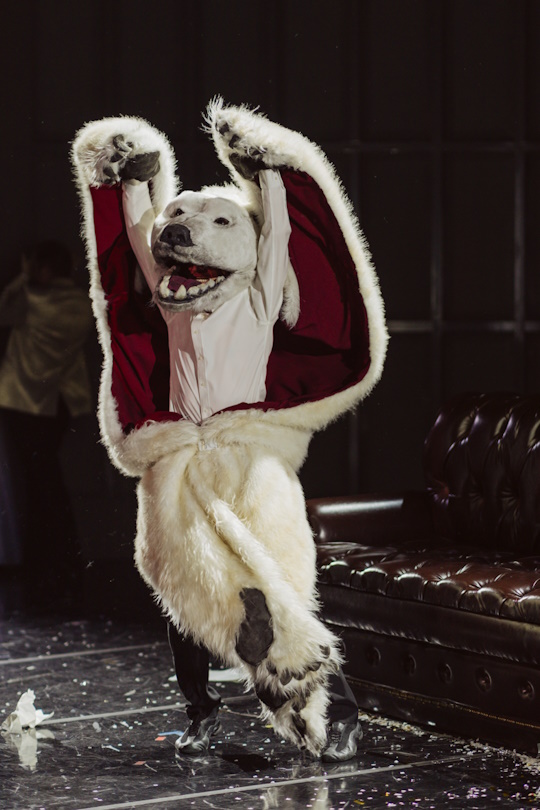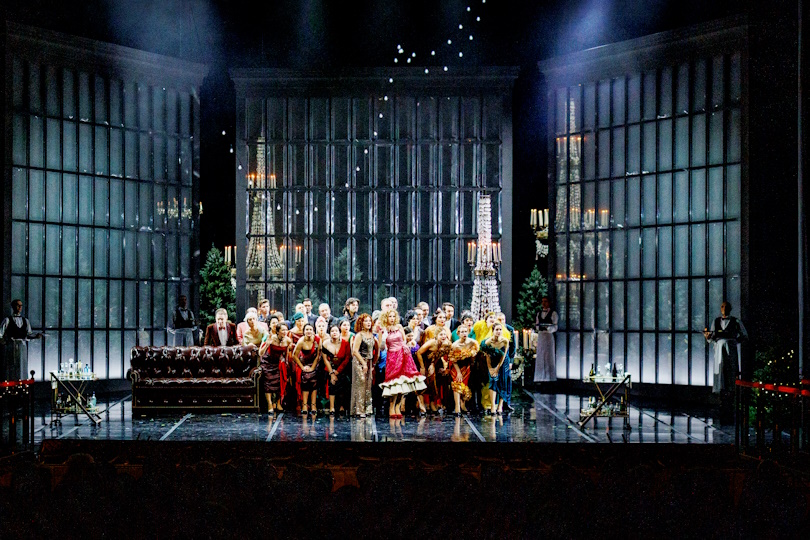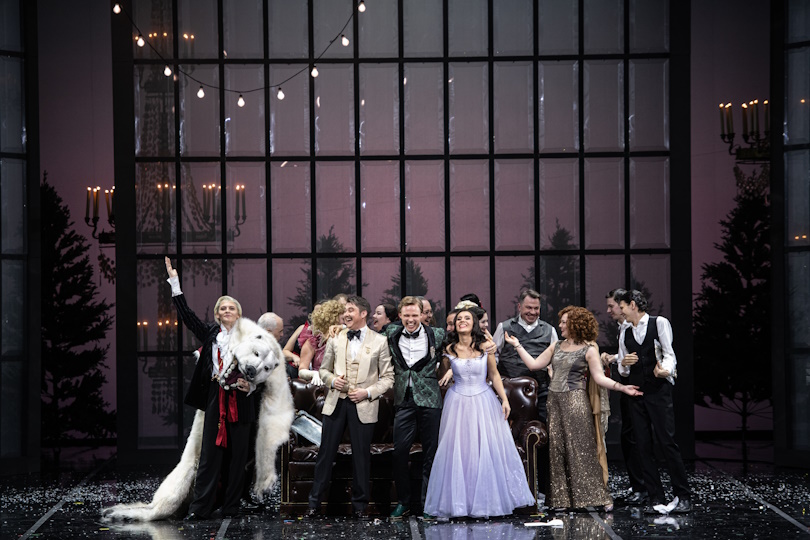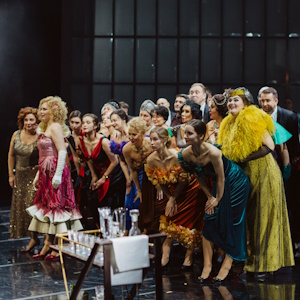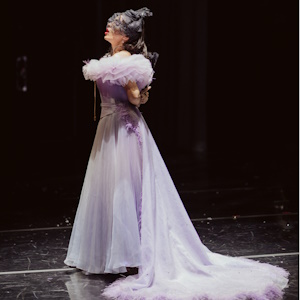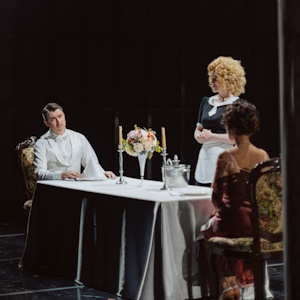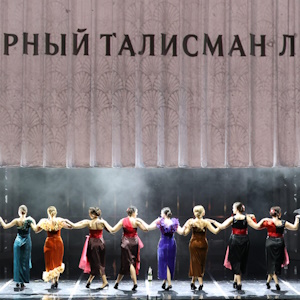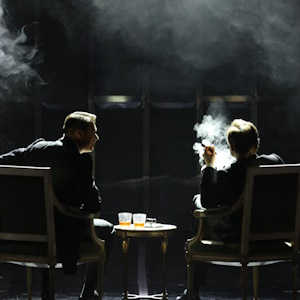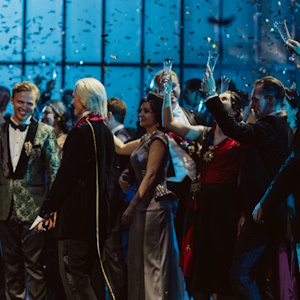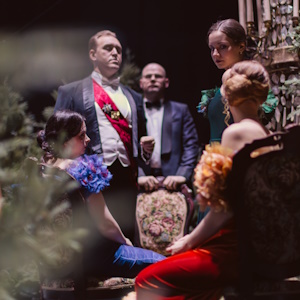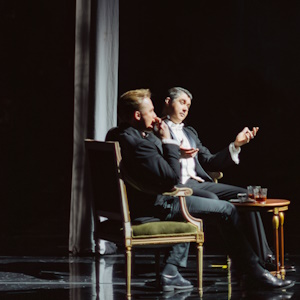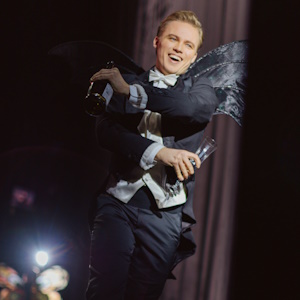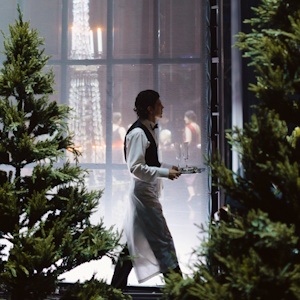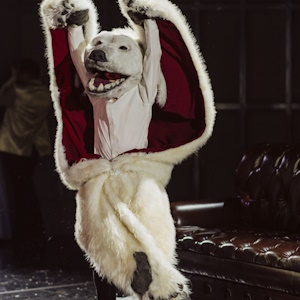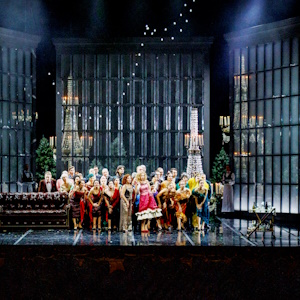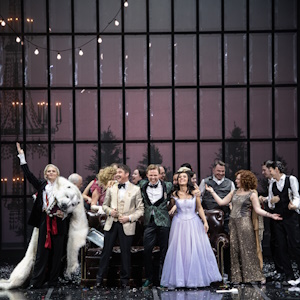Die Fledermaus
operetta in three acts
music by Johann Strauss
 performed in German with Russian dialogues and Russian surtitles
performed in German with Russian dialogues and Russian surtitles
Cast
The bright and witty Die Fledermaus has long become a cornerstone of the classical music repertoire. The operetta by Johann Strauss received its premiere on 5 April 1874 at Theater an der Wien, and since has become popular with many generations of the public.
The new production of the Mikhailovsky Theatre will showcase the exceptional taste of the King of Waltzes, the grace of his characters and the beauty of the music.
“For us, it’s a family story that will be relevant at all times. This is the eternal story of relationship between a man and a woman, who have faced a new stage of their lives and have to see each other in a new light”, musical director of the production and principal conductor of the Mikhailovsky Theatre Alexander Soloviev comments.
Act one
Eisenstein’s house. A serenade is heard outside the window, sung by Alfred, Rosalinde’s admirer. Adel, Eisenstein’s chambermaid, laughs at him and reads a letter from her sister Ida, a dancer. Ida will be at a grand ball given by Prince Orlofsky that night, and she could take Adele with her if she borrowed a suitable outfit from her mistress’ wardrobe. The maid dreams of an acting career and thinks that acquaintance with an influential theatrical patron would be just the way. On a pretext of one of her close relative’s illness Adele asks Rosalinde for the night off, but gets turned down. Today Rosalinde’s husband must go to prison for five days and she cannot be all alone. Unexpectedly Alfred shows up to ensure Rosalinde agrees to have a date in the evening. Before he has time to disappear, the angry master of the house, von Eisenstein, bursts in, accompanied by Blind, his attorney. Eisenstein’s lawsuit has been a fiasco, but the arrival of his friend Dr Falke improves the mood. Falke suggests his friend goes to the ball at Orlofsky’s rather than the prison. Einstein happily agrees. Rosalinde bids farewell to her husband who goes to prison and at the same time tells Adele that she may have the evening off. Alfred reappears in the house to once again confess his love to Rosalinde. The idyll is broken by Frank, the governor of the prison, who has come to arrest the master of the house. The sight of a man attired in a home outfit is beyond doubt: he must be the one to be arrested. Frank assumes that Alfred is Eisenstein. Afraid to compromise his beloved, Alfred goes along with this, pretends to be the convicted Eisenstein and follows Frank.
Act two
Orlofsky’s villa. The ball is in full swing at the villa of Prince Orlofsky, but Falke promises that the real fun is yet to come. His prank is to take revenge on Eisenstein for a silly joke the latter played on him in the past. Sometime he and his good friend Eisenstein left a noisy masquerade totally inebriated and he, in his bat costume, passed out on a bench in a park, abandoned by Eisenstein. So today he will pay for his misdeed in full. Falke thrusts new roles upon the guests. Adele appears as an actress, Eisenstein introduces himself as the French Marquis Renard and the governor of the prison poses as a chevalier. Recognizing his maid, Eisenstein is certainly discouraged, but the most interesting thing is the appearance of a mysterious masked Hungarian countess. This is Rosalinde. She has also been invited to the masquerade and is surprised to meet her husband, Adele and Franck without revealing her true identity. Suspecting nothing, Eisenstein courts the stranger and invites her on a date. The “countess” refuses to take off her mask, but takes the watch from the “marquis” in love, by which he will recognize her at the next meeting.
Act three
Jail. Eisenstein comes here in the morning and sees Alfred behind bars. The jealous husband demands clarification from his wife, who is here to restore justice. In response to Eisenstein’s suspicions, Rosalinde shows him the watch given to the Hungarian countess that night. Falke triumphs. Eisenstein has been exposed. However, fortunately, Rosalinde forgives her frivolous, but still beloved husband.
Premiere of the production: 12 January 2023
Libretto by Karl Haffner and Richard Genée
after Julius Roderich Benedix’s farce The Prison
and play by Henri Meilhac and Ludovic Halévy Le Réveillon
- Musical Director of the productionAlexander Soloviev
- Stage DirectorYulia Prokhorova
- Stage DesignerNikolai Slobodyanik
- Costume DesignerAnna Efremova
- Lighting DesignerDenis Solntsev
- ChoreographerAlexandr Omar
- Video DesignerVadim Dulenko
- Prinicipal pianistNatalia Dudik
- Consultant in the German languageAnastasia Sorina


